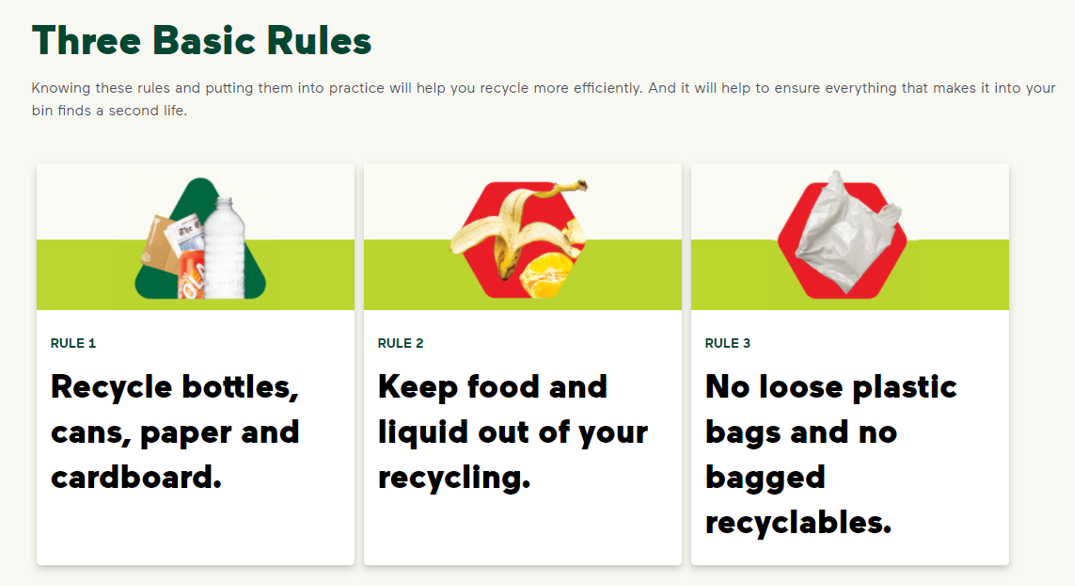How can you Recycle Smart?
The American recycling industry is experiencing high levels of contamination: trash that ends up in the recycling. As a result, our focus on quality is higher than ever, as we work to ensure the long-term sustainability of our recycling program. When non-recyclable items (contamination) end up in recycling loads, the entire load may be labeled as “trash” and lead to increased processing costs resulting in additional service charges.

Keep Recycling Clean: Say No to Plastic Bags!
Plastic bags are the leading cause of recycling contamination and are NOT accepted in curbside recycling. Instead, you can drop them off for recycling at most grocery stores and big-box retailers.
To further reduce waste, food-soiled paper should be composted, not recycled. Our Recycling Center also accepts residential compost drop-offs, making it easy to dispose of organic materials responsibly.
Together, we can keep our recycling stream clean and sustainable!
For a full list of recycling tips, we encourage you to visit our Curbside Collection Resources and Waste Management's page.